News & Insights
On Decolonizing: What It Is and What It Isn't
Hello All,
Paperbacks & Frybread offers a beautiful “Decolonize Your Bookshelf” Reading Challenge for 2023.
And we are excited to be collaborating with them on a Teen and Adult Book Box!
The Institute’s mission is creating anti-racist classrooms with decolonized curricula.
So, what is decolonizing? And what is it not?
In Decolonization is not a metaphor, Unangax̂ Scholar Eve Tuck writes: “When metaphor invades decolonization, it kills the very possibility of decolonization; it recenters whiteness, it resettles theory, it extends innocence to the settler, it entertains a settler future. Decolonize (a verb) and decolonization (a noun) cannot easily be grafted onto pre-existing discourses/frameworks, even if they are critical, even if they are anti-racist, even if they are justice frameworks.” This instagram post breaks down the article.
Decolonize All the Things writes: Decolonization starts with a recognition of your relative social position in the systems we talk about so ofte...
An Ethic of Love: Love Beyond Romance
Hello All,
Happy Black History and Black Futures Month. During this month, we also celebrate Valentine’s Day. We celebrate Valentine’s Day as a way to honor the profoundness of love, beyond romance.
At the Institute, we are fueled by an ethic of love: love for our students, love for our communities, and love for ourselves. It is love, rather than fear or control or indoctrination, which fuels our pedagogy.
In the next few weeks, we’ll be introducing our amazing cohort of curriculum creators. One of them shared: “Teaching from a pedagogy of love means working alongside students to create positive change in their communities.” Another educator described their pedagogy of love as: “Listening and communicating in multiple languages - with our bodies and emotions, words and materials, the natural world. Taking seriously our interdependence: finding the intersection of our questions and needs, collaborating, taking accountability for and healing harm.”
In his Puck newsletter, Baratunde...
Happy National SEL Week!

Last month, a study co-written by Dr. Dena Simmons of LiberatED SEL was published. The piece, “Not try to save them or ask them to breathe through their oppression”: Educator perceptions and the need for a human-centered, liberatory approach to social and emotional learning,” raises important questions about how we conceive of and teach SEL.
5 Takeaways:
- “Not try to save them or ask them to breathe through their oppression”: Educator perceptions and the need for a human-centered, liberatory approach to social and emotional learning,” co-written by Dr. Dena Simmons of LiberatED SEL
- Often, SEL programs are introduced to educators without their input or buy-in. Educators should be included as partners in the creation and implementation of SEL programs (3).
- SEL is not merely a checklist of skills, but a dynamic and dialectic process. SEL is both content and pedagogy, a means to connect with identity exploration and development (6).
- Intentional, humanizing SEL leads to str...
Exploring the History of White Anti-Racists
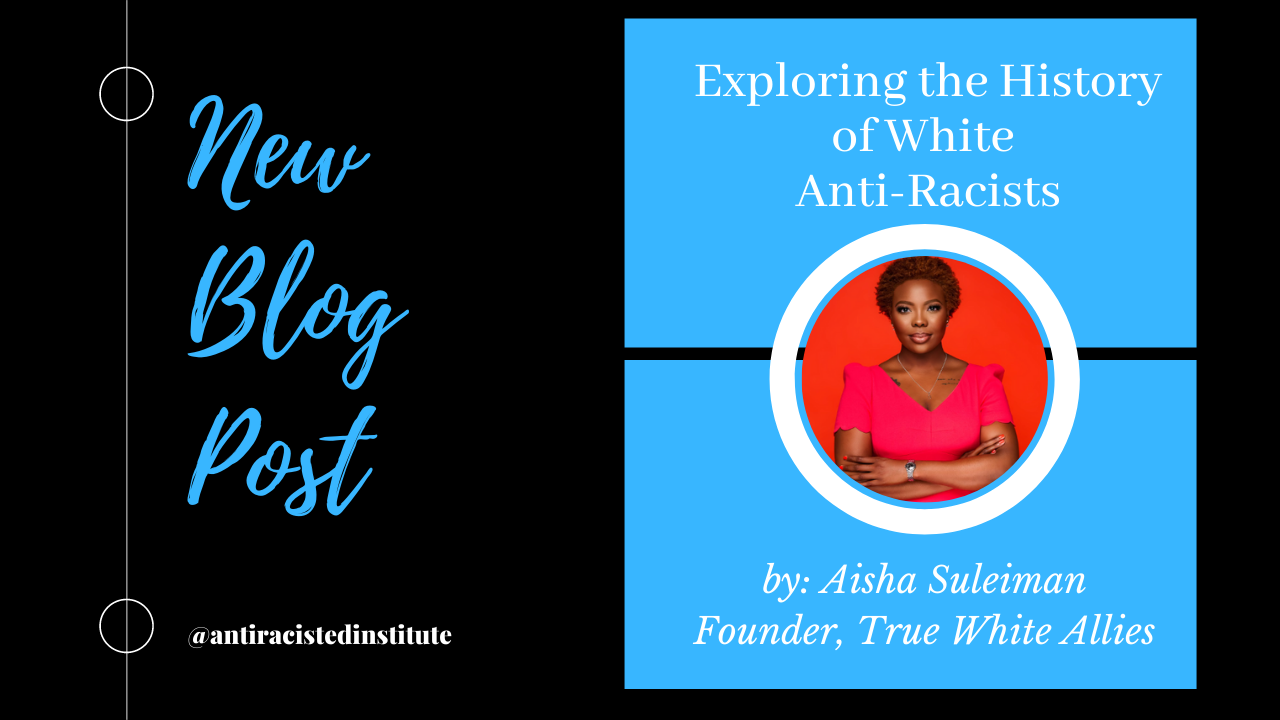
Here at the Institute we have been talking about creating accountability networks. We know that being anti-racist means that we are accountable to reckoning with the past and creating liberatory futures. To better understand our present moment, we need to know how white supremacist delusions have created and maintain structures of oppression. Fighting white supremacy is the work of us all. However, it usually falls on those most impacted by these structures of oppression to do this work.
Our collective liberation is dependent upon those with power and privilege to do this work within their own communities. Aisha Suleiman, founder of True White Allies, offers models of white anti-racists fighting against the historical institutions of enslavement and human trafficking.
We want to share Aisha’s work with our community. We hope you will engage with her materials by reading her website and learning more from her below:
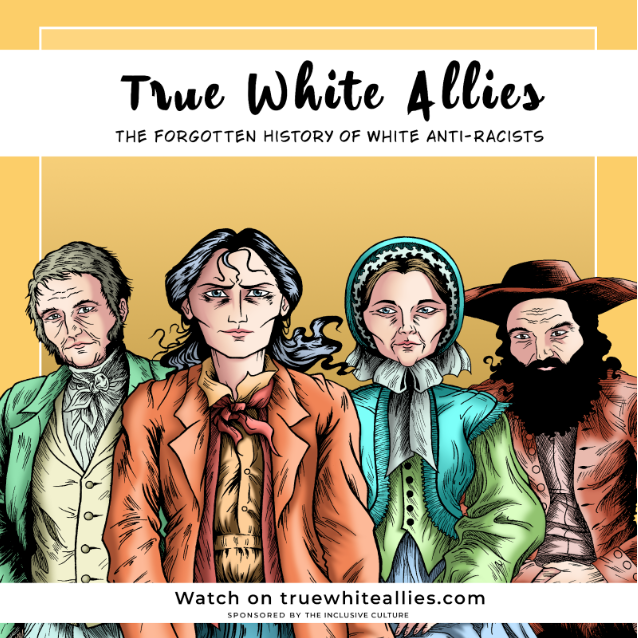
There are plenty of examples of White people being anti-racist ...
I Am Not Your Absolution: 4 Ways to Move Beyond Reading & Start Taking Action Toward Our Collective Liberation

I Am Not Your Absolution: 4 Ways to Move Beyond Reading & Start Taking Action Toward Our Collective Liberation by AYL
In the summer of 2020 there was a national and international call to action for racial justice. There were also individual, interpersonal calls. I have been called for coffee, been direct messaged on social platforms, and been asked to discuss why someone is not racist. After entertaining several of these calls, I have come to this conclusion: I am not your absolution. I do not and will never speak for all Black people, so I cannot forgive you nor give you a pass when you have been racist and anti-Black. I thought everyone was reading in 2020. What did you learn? What happens now that the “reading” is over? It is now 2022, and we are witnessing states banning “CRT” or drafting a don’t say Gay bill, and now the powers that be have voted to overturn Roe v. Wade. So my question is: what will you do? How will you take action toward our collective liberation? How will you ...
How do we keep a school safe without cops?

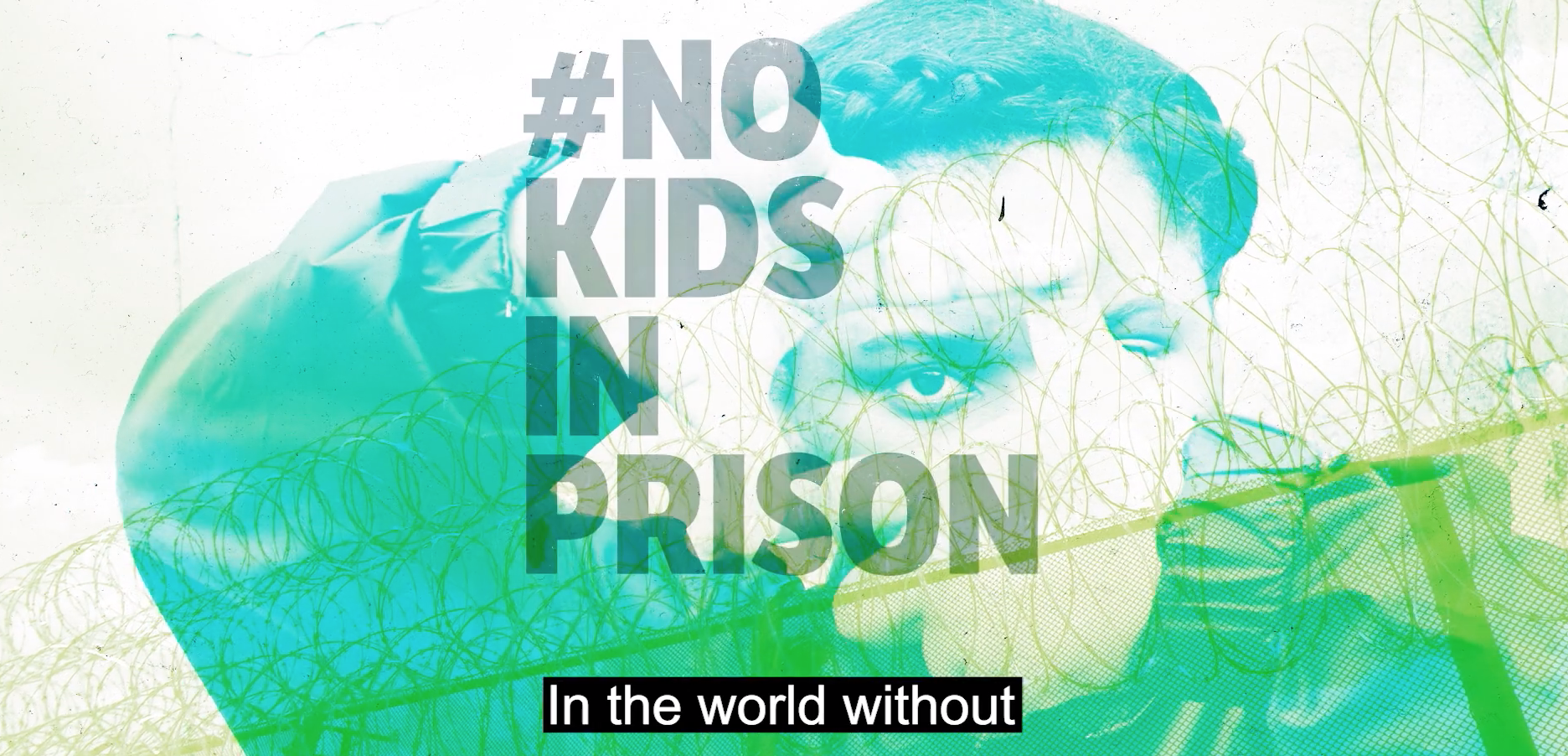
Last year our CEO, Ashley Lipscomb, sat down with Performing Statistics to discuss how we keep a school safe without cops. She leans into a brief history of policing in education, various forms of policing students, why cops don't belong in an anti-racist school, and what a safe and secure schooling environment looks like.
You can access the full video here.
The series is a companion to the #NoKidsinPrison digital experience. To view the digital experience, visit nokidsinprison.org/experience.
More information about Performing Statistics can be found at performingstatistics.org.
All are encouraged to register for the Redefining Safety for Black Students in Schools Panel, on February 7th, to expand their definition of safety. There is more than one way to define safety for Black students in schools. This panel will feature the work of abolitionists, authors, scholars, educators, and activists. Each of the panelists will challenge a single story of safety, centering the experience...
5 Considerations for an Anti-Racist LGBTQ+ Affirming School

I was recently in a meeting with an education organization that I’m consulting with as they begin a new LGBTQ+ initiative. The grounding question was about why we do this work, what brings us to this initiative. Everyone has a story or two, a neighbor, a friend, a student who you never forget. I loved listening to their stories, their connections, their passion, their mix of frustrations and joy. And I also struggled a little with how to answer this question for myself.
As an LGBTQ+ and Equity consultant, I do this work for the teachers, family members, and administrators who have come to me over the years asking for support, resources, strategies; they have the want, but need the how or they need help bringing other people into their why. They need support to have difficult conversations on why this work is important, conversations that keep the focus on equity and justice that is integral to their schools’ mission. All of my work for schools and with teachers and educational leader...
Not Your Algorithm's Winter Gifting Guide: 6 Ways to Disrupt the Capitalist-Fueled Holiday Buying Frenzy

We’ve all done it. Opened a gift we didn’t really want. Enthusiastically said, “Thank you” and then held onto it for the amount of time we deem necessary to assuage our guilt about throwing it out.
Ya’ll! This process is exhausting.
Not only does it require the mental energy of keeping track of--or even moving to a new apartment with--these items that we do not want or need. But, it also involves time and energy to try to find these things a new home or figure out the right way to dispose of them (but for real, what am I supposed to do with batteries?!).
Even when we donate these things or pass them through our local “Buy Nothing” groups, we know that ultimately, these unloved items will end up in a landfill, seeping toxins into the earth, contributing to the end of life as we know it (not being dramatic, this is science)!
To help avoid this capitalist-fueled cycle of waste, our team sat down and pulled together some of our favorite ideas for gifting!
Developing an Anti-Racist SEL Framework: Some Questions for Consideration
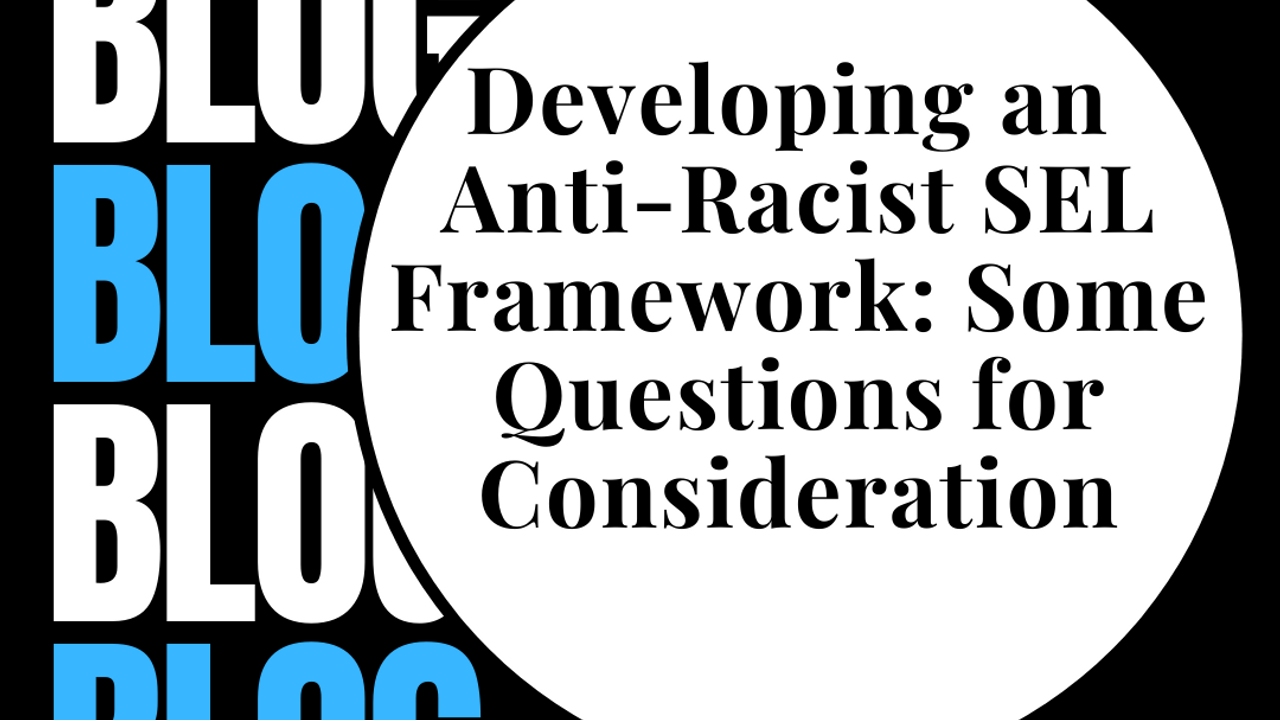
"Learning is an emotional experience, and there is no reason to avoid such emotions." -Augusto Boal, Theatre of the Oppressed
Growing interest in Social Emotional Learning (SEL) in education reflects an acknowledgment of the ways that a student’s learning is intricately tied to their social and emotional worlds. Our Anti-Racist SEL approach honors the ways that student’s learning is also impacted by positionality, power, and history.
While some SEL programs aims to separate or “sanitize” SEL from the work of anti-racist liberation (and therefore risks becoming, in the words of Dr. Dena Simmons, “white supremacy with a hug”), we believe that SEL must be not aligned with anti-racist goals, but imbued with an anti-racist practice.
We offer some questions below for reflecting on your educational community’s current cultural approach to social emotional learning and how you might move it towards anti-racism.
Do our students feel safe to learn in the comfort of their own skin? Safety ...
Critical pedagogy and Latinx Heritage Month
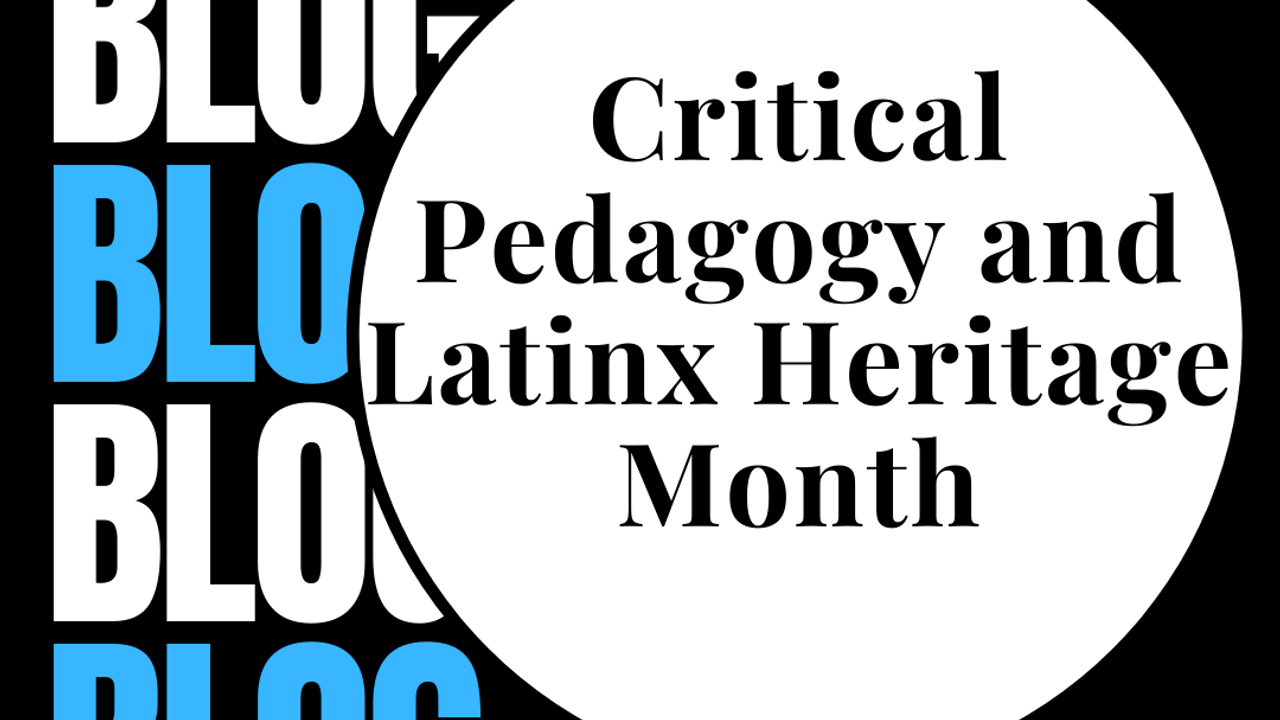
Critical pedagogy and Latinx Heritage Month by Mary T. Perez
Websites offering resources for Hispanic Heritage Month often focus on celebration. As the National Archives puts it: “We celebrate Hispanic Heritage Month to recognize the achievements and contributions of Hispanic American champions who have inspired others to achieve success.” It’s true that there are many achievements and contributions from Latinx people that go unnoticed in the public eye and need to be celebrated.
But, as critical, anti-racist educators we recognize that such celebrations can reify stereotypes, focusing on single stories without considering fuller socio-historical contexts. How can we employ our racial literacy skills to examine power structures that marginalize many Latine communities?
As we think about Latinx Heritage Month from a critical, anti-racist educator perspective we are reminded to push against the accumulation of knowledge. Feminist scholar, Chandra Mohanty, reminds us: “Education for ...

